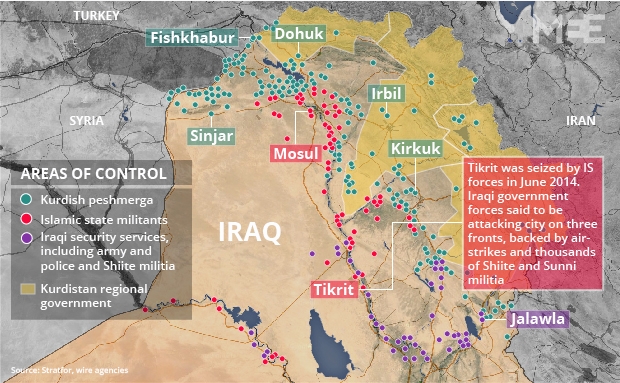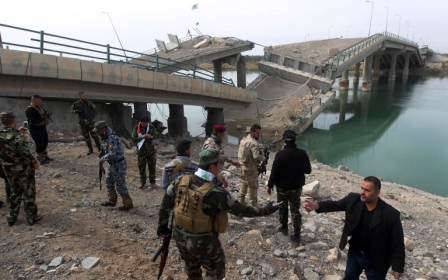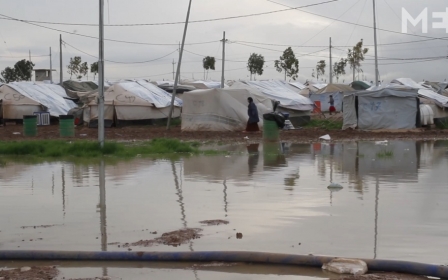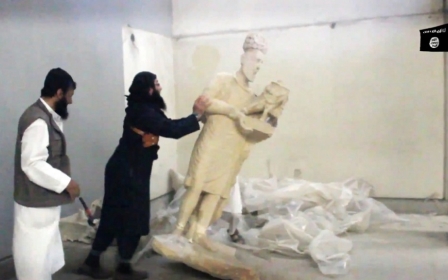Iraqi army launches operation to retake Tikrit from Islamic State
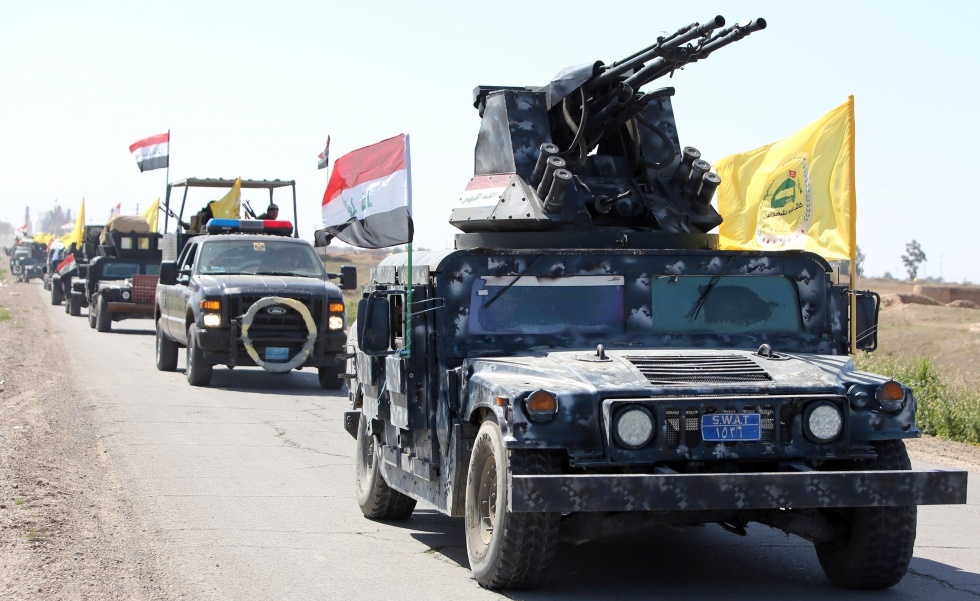
The Iraqi army has launched a major military operation on Monday to retake the city of Tikrit in northern Iraq, which has been held by the Islamic State (IS) group since June 2014.
Iraqi Prime Minister Haider al-Abadi met military leaders in Salahuddin province on Sunday, where troops and militiamen were preparing for the operation.
"The priority we gave to the armed forces and all the forces taking part alongside them is to preserve the security of citizens," Abadi told reporters, urging on social media the “utmost care in protecting civilian lives and property."
He also hinted at a possible amnesty for Sunni citizens who had fought for IS in the region.
"I call on all those who were misled and made mistakes in the past to lay down their arms today. This may be the last chance," he said.
At least 11 people were killed in a suicide bombing on a military position south of Tikrit on Sunday, ahead of the operation.
The retaking of Tikrit has gained symbolic importance for Shiite fighters in Iraq following the June 2014 Speicher massacre in which IS killed more than 1,000 mostly Shiite troops in the Speicher military base near the city.
On Saturday, Hadi al-Ameri, minister for transportation and head of the Badr Organisation militia, urged Tikrit residents to leave their homes so that government forces could "wrap up the battle of the revenge for Speicher."
Local tribes, long accused by Shiite militiamen of taking part in the Speicher massacre, have feared possible retribution from the militias.
Nevertheless, more than 2,000 members of Sunni tribes are believed to be involved in the mission to retake the city.
The US-led anti-IS coalition is also to provide airstrikes to assist the fighting.
Although Tikrit once had a population of almost 400,000 people, the city is now thought to be largely depopulated following the IS takeover and the Iraqi army's original flight from the city.
Uprising anniversary
The operation to recapture Tikrit – birthplace of former Iraqi President Saddam Hussein – holds particular poignance for Iraq's Shiites, coming as it does on the 24th anniversary of the March 1991 uprisings that sought to topple the former dictator in the wake of the Gulf War.
Kurds in the north of the country and Shiites in the south used the perceived weakness of the Hussein government, following defeat by the US after a failed invasion of Kuwait, to try to mobilise enough support to overthrow the Hussein government.
Though several thousands government troops were killed in the fighting, the uprisings were ultimately unsuccessful, as Hussein used planes and, allegedly, chemical weapons, to put down the rebels.
Hussein's reprisals for the uprising were brutal – tens of thousands were indiscriminately killed in both regions and hundreds of thousands fled to neighbouring countries.
Then US President George HW Bush was criticised at the time for failing to provide material assistance to the uprising in Iraq, in spite of seemingly imploring Iraqis to rise up against Hussein.
“There is another way for the bloodshed to stop: and that is, for the Iraqi military and the Iraqi people to take matters into their own hands and force Saddam Hussein, the dictator, to step aside and then comply with the United Nations' resolutions and rejoin the family of peace-loving nations,” he said in a Voice of America statement at the time.
A 'national effort'
The presence of over 2,000 Sunni tribesmen in the operation against IS in Tikrit has been seen by some as an attempt by the Iraqi government to rebuild ties with Iraq's alienated Sunni population, who for years felt they had suffered at the hands of Abadi's predecessor Nouri el-Maliki.
“Its presents this as a national effort rather than as a Shiite effort,” Sajad Jiyad, an Iraqi political analyst, told Middle East Eye.
The operation, Jiyad said, presents an opportunity for Tirkrit's Sunni tribesmen to prove a commitment to countering IS in Iraq.
“It's a chance for them to show that actually, they are fighting, they are taking losses, they are sacrificing their lives for the battle as much as the Iraqi army and the militias,” he said, adding that they also knew “the areas and the routes and the suburbs of Tikrit” better than any one else.
In the wake of Abadi's apparent offer of amnesty for certain Sunni fighters, the presence of other Sunnis in the ranks of the operation against IS in Tikrit will likely reassure fighters who had joined IS that they were not being targetted for sectarian reasons.
“There's psychological pressure to tell them to lay down their arms, to be able to come at them and say 'look, we're your kin that you're fighting, it isn't Shiite militias,'” he said.
Retaking Tikrit would be symbolic, both in terms of its reputation as a former Baathist stronghold and as a show of resilience on the part of the Iraqi army, which had previously come in for heavy criticism for losing the city in the first place, he added.
“Tikrit is evacuated so there shouldn't be that many civilian casualties, but its important to see if they are able to go in and fight IS in what is traditionally IS's expertise, street-by-street, sniper stuff, so that's what the real test is – can they beat IS at their own game?”
New MEE newsletter: Jerusalem Dispatch
Sign up to get the latest insights and analysis on Israel-Palestine, alongside Turkey Unpacked and other MEE newsletters
Middle East Eye delivers independent and unrivalled coverage and analysis of the Middle East, North Africa and beyond. To learn more about republishing this content and the associated fees, please fill out this form. More about MEE can be found here.


